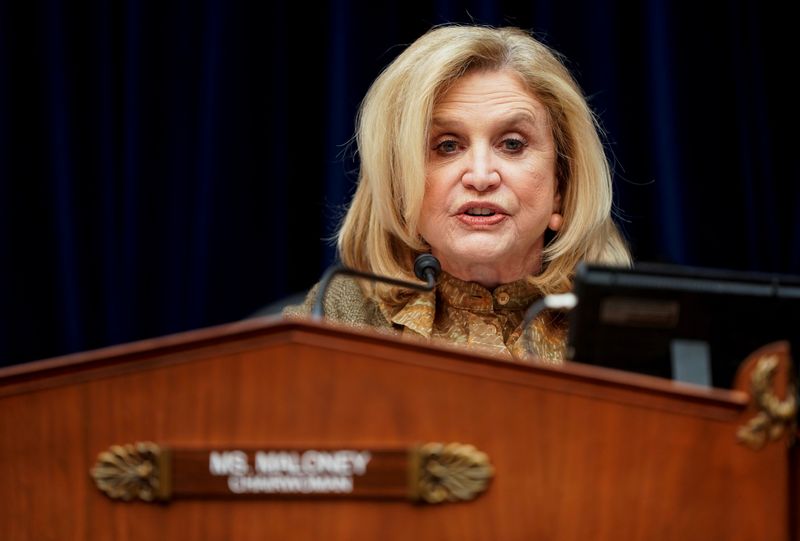By Suzanne Barlyn
(Reuters) - U.S. legislation introduced on Tuesday would create a taxpayer-backed insurance program to protect businesses from revenue losses during future pandemics and require insurers to pay a slice of the claims.
The legislation, introduced by Rep. Carolyn Maloney, a Democrat from New York, would provide up to $750 billion in taxpayer funds to pay insurance claims for business loss revenue during future pandemics. Insurers would first have to pay out a total of $250 million in losses, according to the bill.
Insurers are turning their focus to future pandemics after facing lawsuits, political pressure and criticism from customers who say insurers' business interruption policies denied their claims for pandemic-related losses.
While these policies may cover revenue losses from lightning strikes or cars crashing into buildings, they either exclude or do not specifically cover a pandemic, despite the business interruption it causes.
Maloney's bill proposes a model similar to government-supported commercial terrorism products that followed the attacks of Sept. 11, 2001, requiring insurers to pay part of the claims, before U.S. taxpayers take over.
Major insurance industry groups oppose having to share losses with the government, saying pandemics are "inherently uninsurable."
Instead, they proposed putting the Federal Emergency Management Agency (FEMA) in charge of a fully taxpayer-backed program to protect businesses from future pandemic revenue losses.
"That's not going to pass," said Maloney when Reuters asked about the industry's plan during a media conference on Thursday. "At least let's get to the table and start talking."
Insurers would voluntarily participate in the Maloney plan. Annual deductibles would be equivalent to 5% of their premiums earned during the preceding calendar year.

The government would pay 95% of the insured loss portion that exceeds the deductible, according to the bill.